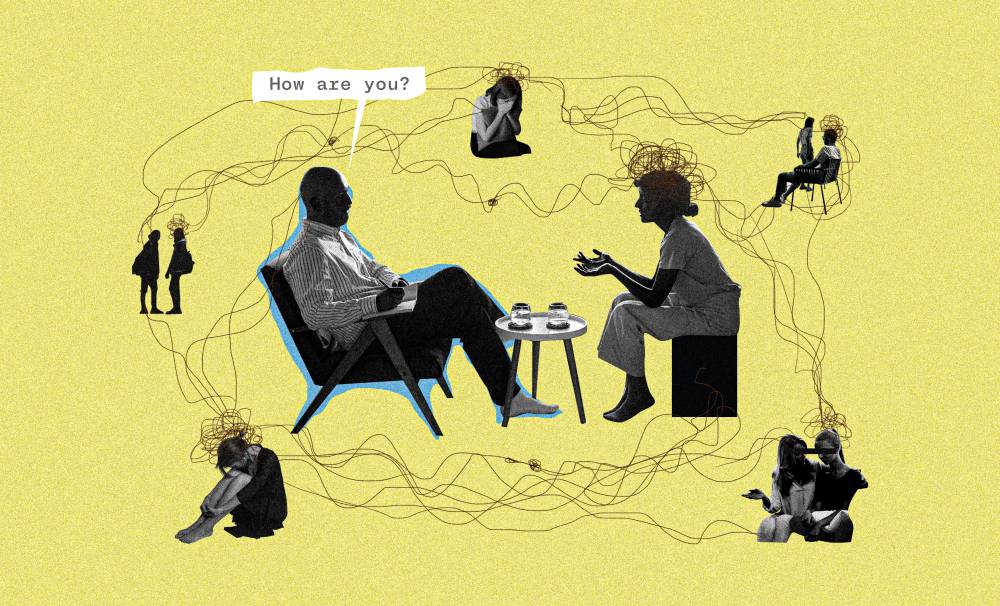Your loved ones can’t always save you—and that’s okay

It is natural to confide in our loved ones when everything becomes increasingly difficult to deal with. Even without any advice—just by listening and being there for us—they can help us feel supported and validated. In matters of mental health, a loved one’s presence and attention can help during bouts of worry and anxiety, or even when in doubt.
Both sides comfort and vent to one another as needed in a healthy relationship. Because when you love someone, you want to be there for them, through high or low, whether they’re thriving or struggling. In turn, you want them to be there for you in the same way.
However, while our loved ones can be a good support system, they are not substitutes for professional guidance. After all, they are neither medical practitioners nor are they equipped with the required knowledge and expertise for mental health concerns.
Just as doctors who treat matters of the body, there are specialists who address matters of the mind. The bottom line? Your loved ones can’t always save you.
On support systems and boundaries
A support system can be anyone who makes us feel safe enough to open up, and is not necessarily a medical professional. Typically, our family members and close friends are our first line of support.
Support can also come from a romantic partner. While it is a common notion that you have to “heal” before entering a relationship, that isn’t always the case. But that doesn’t mean romantic partners can’t or shouldn’t have your back while you’re going through it.
Healing can happen on your own or alongside your partner. It all comes down to open communication, genuine value for the relationship, and a clear respect for boundaries.
Boundaries are the standards “by which we want people to treat us.” They can range from physical to behavioral and mental, or even your emotional threshold. From here, boundaries provide a basis for emotional connection and support. Thus, a healthy, fulfilling relationship.
But crossing boundaries can risk said relationships.
The risks of broken boundaries
Regardless of your position as “the one struggling” or “the one supporting,” it is your responsibility to communicate honestly about your boundaries. Doing so creates space for empathy and solution-oriented communication, especially with emotionally-heavy conversations.
To reiterate, your loved ones are not your therapist, as they also have emotional limits. It is important to recognize that conversations with heavy topics can take a lot out of both sides.
In a healthy relationship, opening up is mutual and consensual—not just one-sided “trauma-dumping,” which is the act of emotionally venting to someone without consent or capacity to hold space for it.
When emotional sharing becomes an overwhelming constant that seeks solutions instead of support (the most that loved ones can give you), it strains the relationship. However, crossing boundaries doesn’t always mean the end of a relationship. Each of us has to accept that mistakes are inevitable. What matters is how we acknowledge them and take responsibility, without repeating them as you move forward.
Overall, “You should never ‘need’ someone. You should ‘want’ them,” says YouTuber Jaiden Animations.
Navigating mental health and boundaries
The difference between healthy sharing and trauma-dumping lies in two things: intention and consent. If both people agree to the conversation, that implies mutual respect—healthy sharing. On the other hand, trauma-dumping is unloading heavy emotions without warning, which risks an unwilling listener and a burden they didn’t ask for.
Emotional sharing should be done with respect for the other person’s boundaries, rather than just transferring emotional weight. So ask yourself: What feels safe and relevant for me to share? Am I sharing to feel understood or to offload? Is it a good time for them to listen?
You don’t have to talk about everything going on in your life, which is a healthy boundary in itself. And as always, communication is key for both sides.
• For those struggling: People who set aside time and energy for you are the kinds of loved ones you deserve. Communicate your needs, but make sure it’s within their capabilities, understanding, and non-judgmental attention. If you can, seek professional help alongside your loved ones’ support. You don’t have to feel alone in what you’re going through.
• For those supporting: You are not responsible for anyone’s feelings, including the loved one seeking your help. You are there for presence. You don’t have all the solutions, but being supportive already means a lot.
If you are not in a position to reach out for professional help, be it financially or emotionally, that’s perfectly fine. Being aware of your current situation is a big step, as it gives you more control over your journey to healing. After all, mental health has never been about being “saved” or “rescued.” It’s about adapting to our struggles and making room for them.
Healing is never linear, but learning to care for ourselves along the way makes boundaries all the more important. Part of that care is reaching out for help—whether from professionals or loved ones—to a manageable extent.
The journey to healing is long and difficult. Moreover, it varies from person to person. But with the presence of our loved ones and support systems, recovery does not have to be so scary.

















